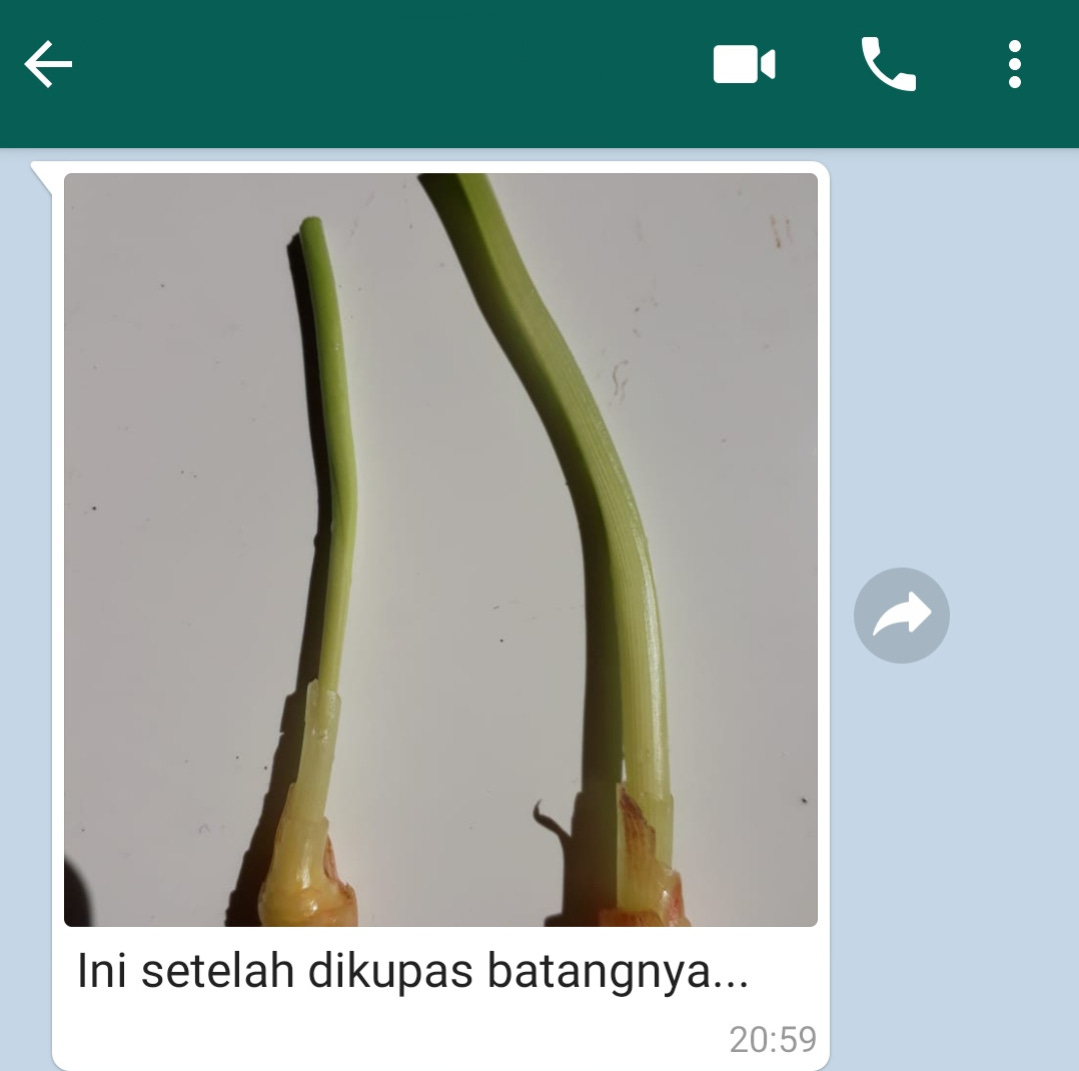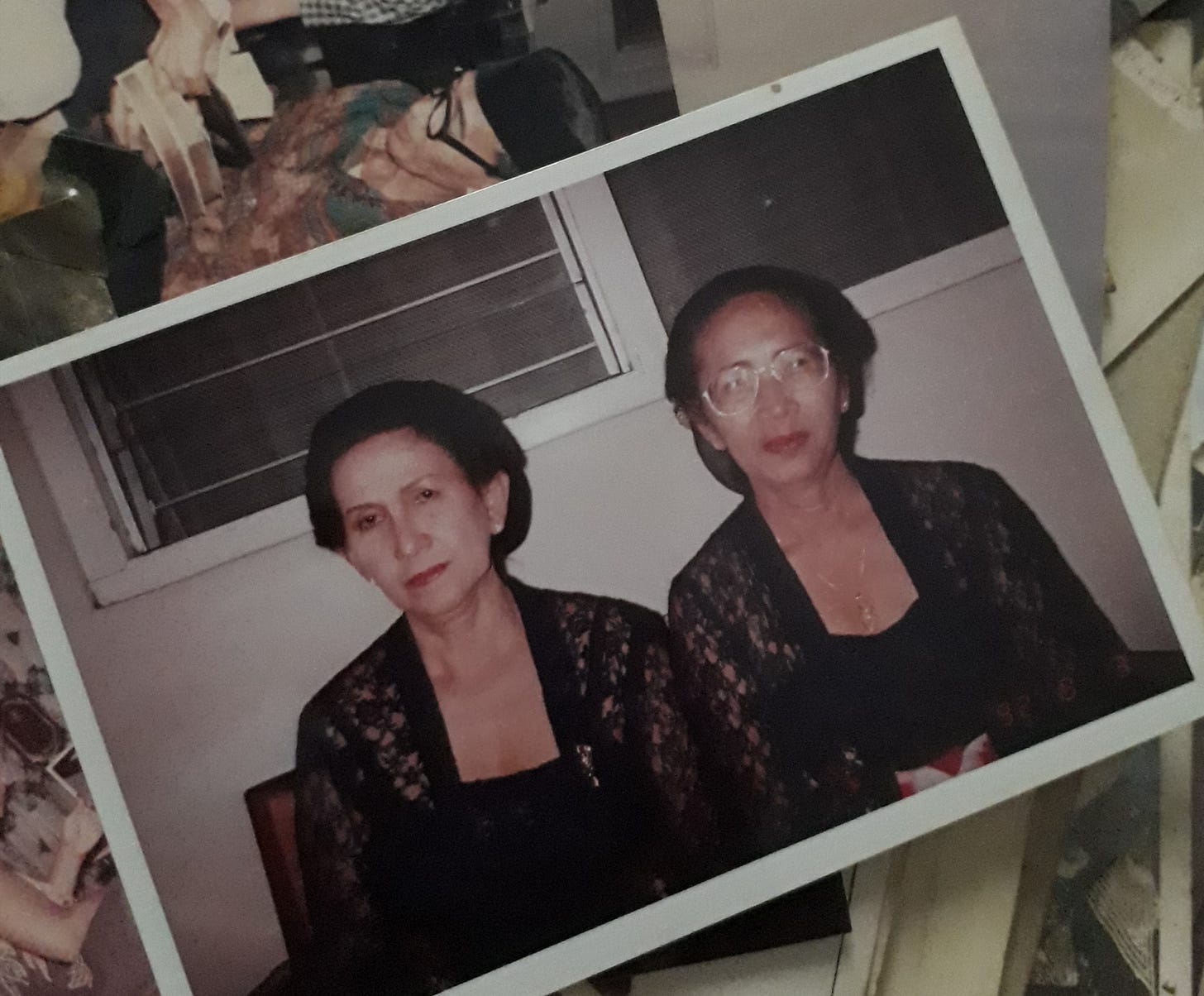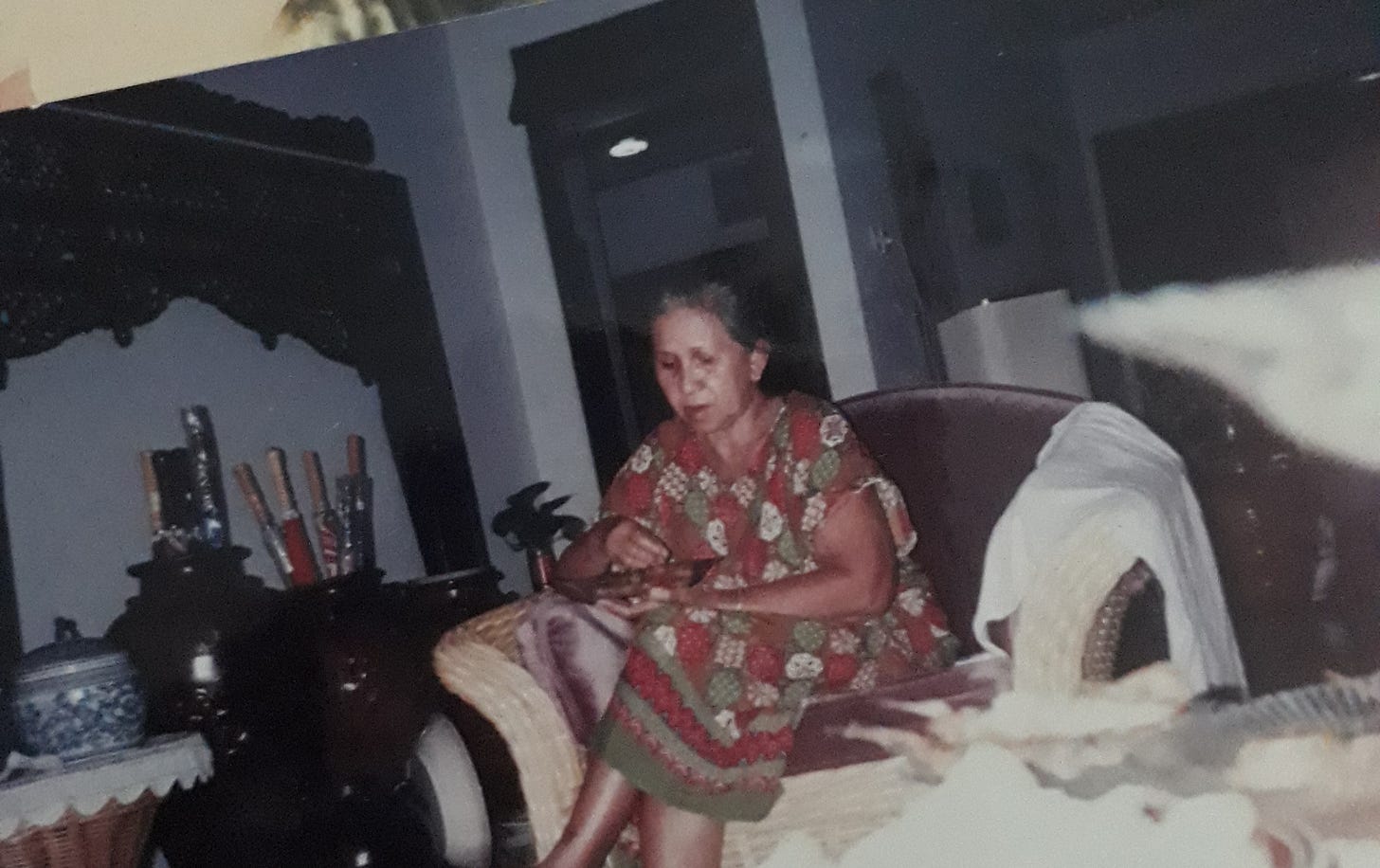Last Tuesday, 22 December, was Women’s Day in Indonesia. This day is often mistaken as Mother’s Day. It is not. The word “Ibu” here refers to how women are addressed. 22 December was the day of Women Congress in Indonesia. To commemorate this day, I’d like to pay a respect to the women before me who have made a path for me to walk.
Without these women, I wouldn’t be able to be here, write this piece, make jamu for my side hustle and to show love to my friends. Well, without them, I wouldn’t be.
a text on 23 December from my mother, showing her best harvest of this rainy season: Kunci (Moulu) (only harvested once a year on the early period of rainy season)Nyi Siti Aminah
The matriarch I have never met, yet I’ve heard from many people including my grandmother, Marjati. Her name was only Aminah, but after she married my grandfather Oemar, a Muslim man, her name turned into Nyi Siti Aminah. My grandmother said her mother was someone who loved to spend her time alone. She raised all her 9 children in a village near Lawu Mountain and she could be gone for days. Some says she was doing her tapa brata; to meditate and to restrict oneself - despite her husband’s status as a Muslim.
When she was at home, Aminah made jajan for her children. Serabi, Madu Mongso, Ketan Bakar (Roasted sticky rice), and last, my grandmother’s favorite one - Brem. A sweet and sour solid jajan made of fermented sticky rice. I don’t like it, though. It’s an acquired taste - I mean…
Marjati
Marjati (right) and Soetarni (right)Petite, short-sighted, and very social, this petite lady is my grandmother who took me on many short trips when I was a kid. Strange enough, we were mainly visiting cemeteries and her friends whom she always referred to as “relatives”. My grandmother wasn’t raised as a Muslim, so she still believed in paying respect to ancestors. We got on the train to Solo, Ngawi, Nganjuk, Kediri and brought Kembang Tujuh Rupa (7 types of flowers; roses, jasmine, kembang turi…), rose water, and some oil for the trip. Then, once we arrived at the cemetery, she’d pray next to the grave while I was squatting and observing the flowers.
Before she was the graveyard woman I knew, Marjati was a headmaster at a school in Madiun. She taught me math and Javanese. She was very relaxed and never pushed me to study. Maybe that’s why I like learning under her guidance. But little did I know, Marjati whom everybody in my family (including her children) labelled as “spoiled strange lady” is a hard worker. My grandfather resigned from his job earlier. He was only in his 40s. There were 6 children at home who needed to be fed. Marjati, this spoiled strange lady, turned her knowledge in growing plants and making Jamu into a small business that helped all of her children to graduate from high school - some even graduated from university.
In those days, she worked at the school, then coming home, she and my mother would pick up turmeric, ginger, galangal, tamarind leaf, salam leaf, and betel leaf. Then, my mother and her sister would help with dinner while my grandmother took a break. Finally, early in the morning before going to work, she grated empon - empon like turmeric, galangal, ginger, and pounded them together. Last, she boiled all of them together and put them into kendi (claypot jug) or reused bottles, if she was lucky.
Before work, she’d deliver some herself or she’d ask my mother and my aunt to drop the jamu before school.
I think that was an overlooked point in her life that I only knew just a couple months ago.
Soetarni
There’s no words that could ever describe Soetarni. Today, people would call her Bipolar, probably. She could be problematic sometimes. She could be manic too. But, she’s actually the one I love the most. The one I spent my childhood most of the time. Soetarni is my grandmother from my father.
She’s bold, brave, stubborn, loving, giving, and enjoying life to the fullest.
One day, she’d spent the day by watching telenovela or Jet Li for non-stop and eating very simply. But the next day, who knows? Cooking Bubur Manado for all of the neighbours in the gang (alley)? Adopting a child? (Yes, it happened. Twice). Cleaning-up the house intensively until she received an award for the cleanest and most organized house in the kampung for 3 years straight?
One could say she’s manic. One could say she loves hard. But, I guess, she just kept her emotion in herself, she felt so much - the poor family coming all the way from Manado during the conflict with 5 children and so one day she decided to adopt one of them, then another day, one of them again - and she rarely shared. So, once she did it, it felt like a shock.
The truth is, nothing was ever a surprise to her.
Her life was a long hard journey. From Lamongan, Malang, Surabaya, then Makassar, and finally, back to Surabaya, where got a home near the port. She was the second child and first daughter of an architect who went bankrupt when Indonesia took possession and buildings of Dutch Indies, making him left with no job. Her mother died when she was young. She, her father, and her siblings had to walk from Lamongan to Surabaya to avoid war. She had to eat Gaplek and Tiwul on many occasions, something she didn’t eat when she was a kid in Lamongan. She had to constantly move, but she enjoyed it and she made the best of her life by cooking foods from Manado, Makkasar, and Ambon.
As far as I know, she’s Javanese, but she’s a great cook and a very good eater! From Papeda, Bubur Manado, Ikan Kuah Kuning, Semur, to Coto Makassar. From enjoying Gaplek to having Crawfish in Borneo as her last meal. Soetarni is a loving nomad.
Philus
Many people would say I do not look like her. I’m tall, she’s short. I have dark skin, she has lighter skin. I get tanned easily, she turns red like a crab if it’s too hot. I’m carefree, she’s anxious. I try to listen, she talks so much. But I think I’m growing to look like her and to like her, apparently.
I didn’t have a good bond with her to be honest. She was away most of the time or sometimes, she was gone for no reason. But she’s learning to love better and so am I. Philus is a hard worker, but she’s also anxious, very careful, and meticulous.
My mother doesn’t really cook. But she has a green thumb that could grow anything, even in the hardest impossible dry soil; from grapes to Sedap Malam (Tube Rose). Once she’s in the kitchen, she makes Jamu and basic ingredients, like coconut oil (through a hot-pressed process where you roast the grated coconuts until you get the oil).
She was the one who taught me how to make Kunyit Asem for my period. Later on, as I grew up, she taught me many other kinds of Jamu. She’s a learner. So, her collection of Jamu recipes will always grow. She’s curious. So, there’s always a new plant in her garden and a new bottle of experiment in the cabinet.
Erna.
She’s not my mother, but I call her Ibu and I owe so much to her. She’s my father’s sister who babysit me until I was three years old. Then, when I was older, I had no safe place to go, I stayed with her for a while. She fed me. She let me roam around the house, learn how to ride a bike, motorbike, and car (all done around her house). She asked me to join her on her weekend trips which was so fun because I got the chance to eat a lot of food.
Every weekend we went to Malang, Ponorogo, Trenggalek, Bojonegoro, Madura and even Semarang which is far from our house in Surabaya, just to eat. She’s very adventurous, just like her mother. She doesn’t cook and she’s hungry and she’s greedy, but she’s willing to go far.
Those are the stories of my women. Through writing this, I hope I could love them better and heal their wounds, my wounds. Don't forget to love your womxn!
Happy holidays!
Prinka from Dapur Saraswati








